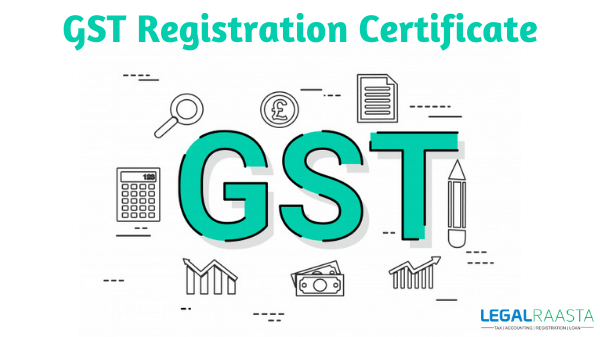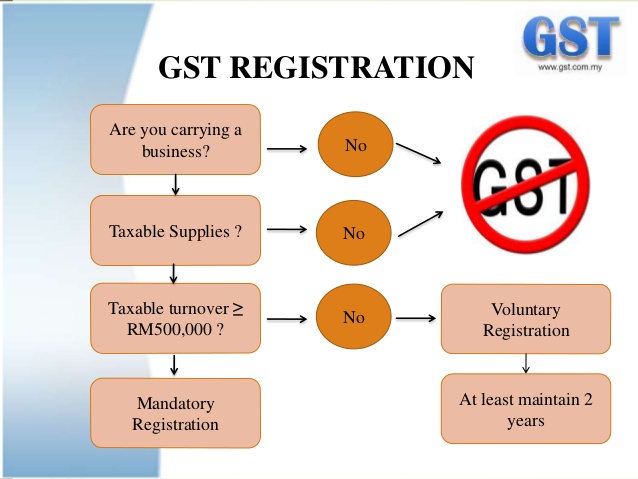Navigating the Intricacies of GST Registration: A Comprehensive Overview for Entrepreneur
Browsing the intricacies of GST enrollment can be a complicated task for several local business owner, as it involves a myriad of regulations, laws, and refines that should be complied with. With the ever-evolving landscape of tax regulations, ensuring conformity and understanding the ins and outs of GST registration is vital for the seamless procedure of any kind of service. From identifying eligibility and collecting the essential paperwork to maximizing procedures for maximum efficiency, this comprehensive overview intends to give local business owner with the expertise and tools needed to navigate the intricacies of GST enrollment effectively.
Qualification for GST Enrollment
Local business owner must meet specific standards to establish their qualification for GST registration. Generally, businesses with a yearly turn over surpassing a certain threshold are called for to register for Item and Provider Tax (GST) This threshold differs by country, however it is essential for business owners to remain educated about the details policies in their territory. Additionally, organizations associated with interstate materials, ecommerce, or the arrangement of specific specified goods and services may also be mandated to sign up for GST, regardless of their turnover.
In addition, businesses that are registered under any kind of previous tax obligation routine, such as VAT or solution tax, are typically needed to change to GST enrollment. Understanding these standards is important for entrepreneur to make sure conformity with the legislation and avoid any kind of penalties or lawful concerns. It is advisable for business owners to talk to tax experts or legal consultants to analyze their eligibility for GST registration accurately. By adhering to the essential standards, companies can efficiently browse the complexities of GST registration and operate legally within the tax framework.
Papers Needed for Enrollment
To finish the GST registration procedure, businesses require to gather and send a thorough set of documents. The vital records needed for GST registration commonly consist of proof of business enrollment or incorporation such as the Certification of Unification, partnership action, or any kind of various other registration certificate.
Moreover, details files connected to the nature of the company, such as a listing of goods or solutions provided, HSN codes for goods, and cavity codes for services, may be needed - Why choose CFO Account & Services for GST registration in Singapore. It is vital for companies to ensure that all files submitted are accurate, up-to-date, and in the recommended layout to avoid any type of delays or difficulties in the GST enrollment process
Process of GST Enrollment
Having set up the requisite paperwork, companies proceed to launch the GST registration procedure by engaging with the online site marked for enrollment. This on-line site is the Goods and Solutions Tax Network (GSTN) site, which works as the primary system for all GST-related activities in India. Upon accessing the website, businesses are called for to fill in the GST registration type with precise information regarding their organization activities, turnover, and other pertinent details.
Once the type is finished and submitted on the portal, the GSTN verifies the details offered by the organization. If any kind of discrepancies are found, the applicant may be required to provide extra information or clarification. Following successful confirmation, a GST enrollment certification is released to the service entity. This certification contains a distinct Goods and Solutions Tax Obligation Recognition Number (GSTIN) that is made use of for all GST-related deals.
It is essential for organizations to guarantee that the information supplied during the GST enrollment procedure is accurate and as much as date to prevent any type of prospective issues or delays in obtaining the GST enrollment certificate.
Understanding GST Conformity

Organizations need to be aware of the different GST conformity demands based on their turn over, nature of services or products, and the states in which they run. It is crucial to remain upgraded on any kind of adjustments in GST legislations and policies to stop any type of non-compliance concerns.
Non-compliance with GST laws can result in substantial fines, penalties, and also lawful consequences. As a result, companies need to spend time and resources in enlightening themselves and their team on GST compliance. Seeking professional help from tax experts or consultants can additionally aid in navigating the intricacies of GST compliance and making certain that services operate within the legal structure.

Tips for Optimizing Organization Operations
For enhanced performance and productivity in organization procedures, tactical planning and streamlined processes are important parts. One tip for enhancing organization operations is to leverage innovation successfully (Why choose CFO Account & Services for GST registration in Singapore). Implementing the ideal software application solutions can automate repetitive tasks, improve accuracy, and enhance overall operations performance. Furthermore, carrying out routine performance evaluations and gathering responses from staff members can supply valuable insights for recognizing bottlenecks and locations for renovation.
One more crucial aspect is focusing on jobs based on their value and due dates. By producing a clear pecking order of jobs and setting realistic timelines, services can make sure that vital activities are finished on schedule. Fostering a culture of open communication and cooperation amongst group participants can lead to enhanced effectiveness and innovation.

Verdict
Finally, navigating the intricacies of GST registration needs a clear understanding of eligibility criteria, required files, enrollment procedures, and conformity requirements. By sticking to these guidelines and enhancing company procedures, local business owner can make certain smooth operations and compliance with the GST policies. It is necessary for organizations to remain informed and upgraded on GST laws to prevent any fines or lawful issues.
The key documents required for GST enrollment normally include proof of service enrollment or unification such as the Certificate of Consolidation, partnership act, or any type of other enrollment certification.Having actually assembled the requisite documentation, companies Discover More Here proceed to start the GST registration process by engaging with the on-line portal assigned for enrollment. Upon accessing the portal, businesses are needed to fill up out the GST enrollment form with precise information concerning their company activities, turn over, and various other appropriate details.
In order to maintain adherence to GST regulations and stay clear of charges, organizations need to focus on comprehending GST conformity. By click to read more sticking to these guidelines and maximizing company operations, organization proprietors can make sure smooth procedures and compliance with the GST regulations.